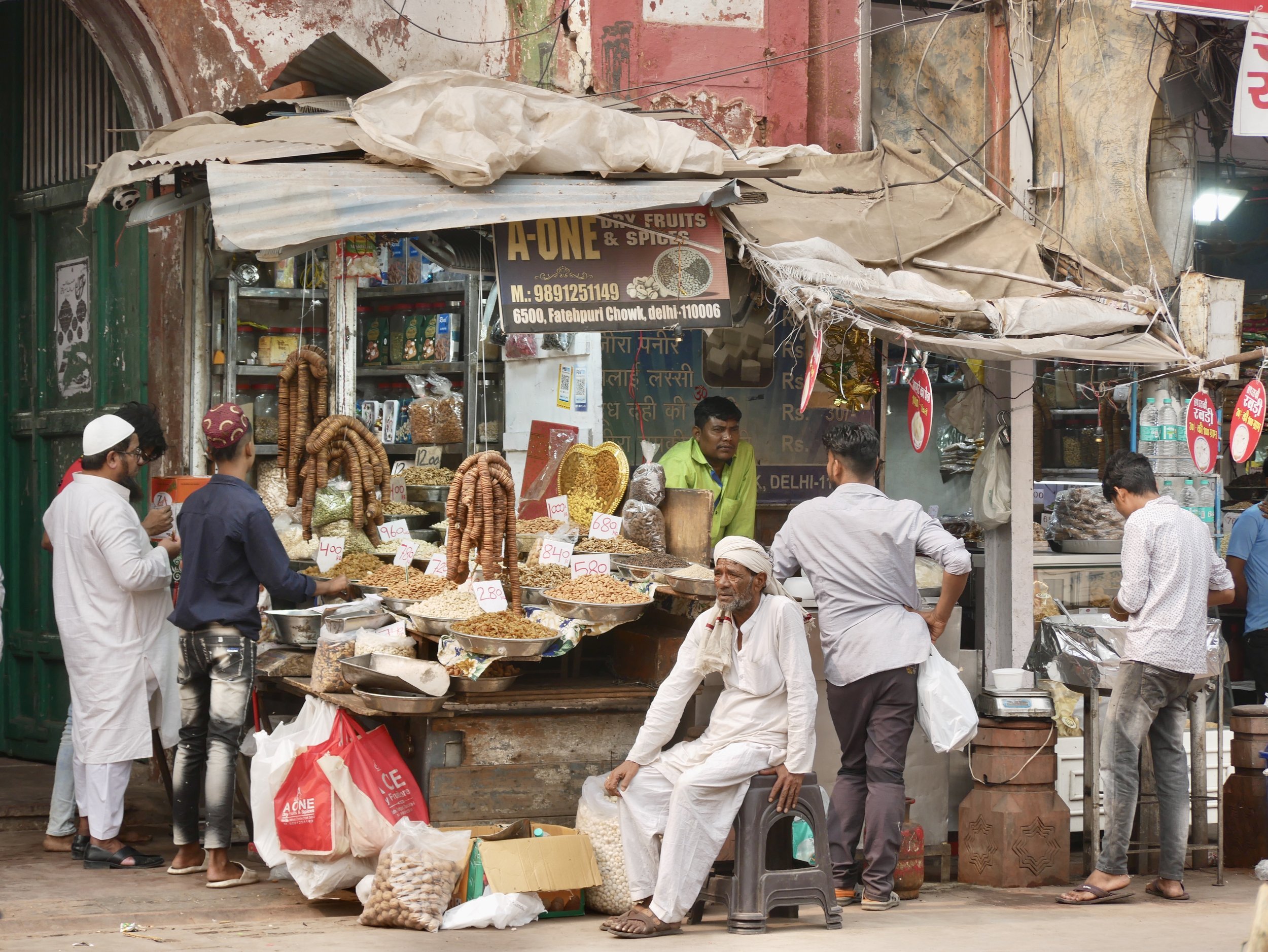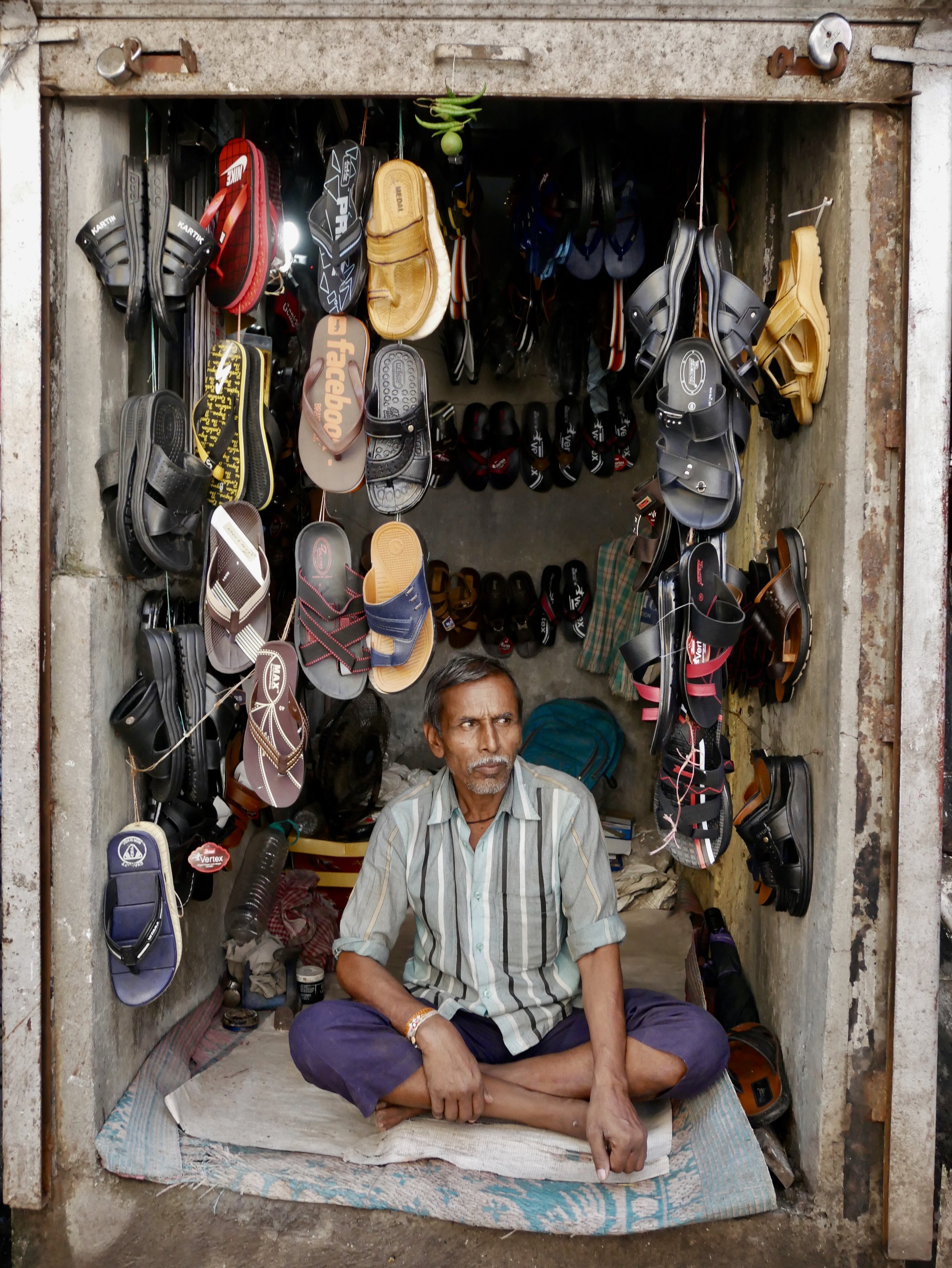India
Gupta Nath. Chennai, Tamil Nadu. April 2024.
“I walked here from Kashi (Banaras, also known as Varanasi). I have been going from temple to temple trying to find God, but now I know he isn’t in the temples, he is in our hearts.” Gupta Nath is a sadhu, a wandering Hindu ascetic who has renounced the material world in search of enlightenment. I met him as he passed through the flower market in Chennai.
Guni Devi, Pachewar, Rajasthan, November 2022
Ribari herdsman, Haryana. September 2017.
Preparing the chai, Barnala, Punjab. September 2024.
297x420mm on Hahnemüle German Etching paper. £95 unframed
This early morning shot shows a tea seller preparing for the day. At the time the photograph was taken, the temperature had already reached 35 degrees with 85% humidity. I took several shots of him, almost hidden by the steam until it finally cleared, revealing him wiping his face with his gamcha (worker’s scarf).
Ranjani at work. Panchla, West Bengal. November 2022
Panchla is about 35 kilometres outside Kolkata. There are several small businesses in the town that produce embroidery, using small stones, glass, plastic and other items to decorate saris, dupattas and skirts. Most of the workers are Muslim men but some Hindus also work in this field. I visited one atelier where men from both religions were working together. Ranjani is a Hindu. She will receive 100 rupees for each finished garment (about £1.15). They will then be sold by a third party for about 5,000 rupees.
Contemplative Pandit, Nawalgarh, Rajasthan. September 2024.
In Hinduism, the term “Pandit” is used to refer to a teacher or learned man who may also carry out the duties of a priest. The markings on this man’s forehead show that he is a devotee of the Hindu deity, Vishnu.
Ravi as Karuppannasamy. Koovagam, Tamil Nadu, India. April 2024.
Ravi is a farmer who also acts in community theatre in Tamil Nadu. He is seen here as Karuppannasamy, the god of righteousness, worshipped by the Hindu Tamils of south India and Sri Lanka.
Red and yellow. Hyderabad, Telangana. April 2024.
After the rain, Patan, Gujarat September 2019
On the waterfront. Chennai, Tamil Nadu. April 2024.
Outside the Fatehpuri Masjid. Delhi. November 2022
Waiting in the rain, Agra, Uttar Pradesh. September 2024
Ramnath’s shoe shop, Mumbai, Maharashtra, September 2019
Ramnath has a tiny shop in Dongri, Mumbai., one of Mumbai’s older commercial areas. He is originally from a village in Madhya Pradesh, from where he brought his family to the city a few years ago in search of work and a better life. We spoke for a few minutes, and he was happy to be photographed - but like many people sitting for a picture - he stiffened and put on his formal photo face. I eventually gave up, thanked him and turned to leave. As I walked away, I turned to say goodbye once more and saw that he was scanning the street, looking for customers. That was the shot.
Morning prayers. Ahmedabad, Gujarat. September 2019.
Dilip Ghosh, chaiwallah,
Beadon Street, Kolkata, West Bengal,
September 2017
This chaiwallah, or tea seller, owns a stall in Beadon Street, North Kolkata. I first photographed him in 2017 when I noticed his striking appearance and the brightly coloured backdrop. I took several shots, bought some tea and chatted with one of his customers who told me that the chaiwallah’s name was Mohan Lal.
A year later I went back to give him a copy of the picture. No-one in Beadon Street knew a chaiwallah called Mohan Lal and I began to think I had the wrong street, but eventually I found him and handed him the picture. He nodded his thanks and passed the photograph to his wife. She became very excited and went to show it to neighbouring traders. He explained to my Bengali speaking friend that his name is Dilip Ghosh and that he has no idea who Mohan Lal might be. In 2019 I used this picture for my first exhibition at the Maison Bertaux Gallery. Dilip has a copy of the poster displayed behind his stall.














